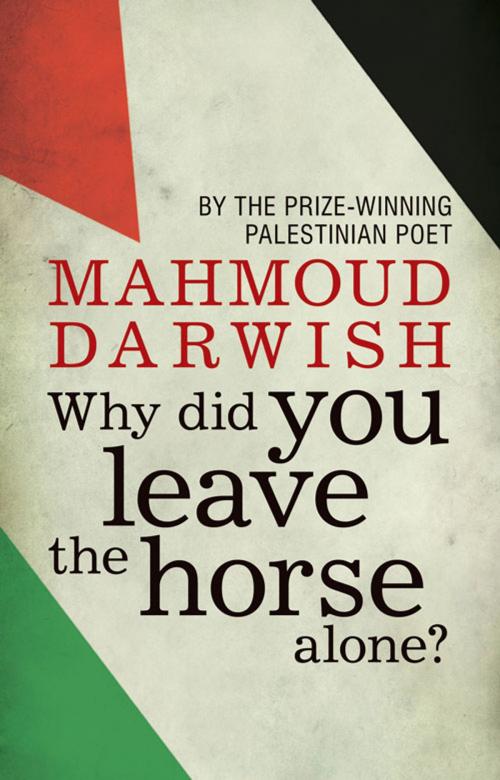| Author: | Mahmoud Darwish | ISBN: | 9781780943411 |
| Publisher: | Hesperus Press | Publication: | November 1, 2014 |
| Imprint: | Hesperus Press | Language: | English |
| Author: | Mahmoud Darwish |
| ISBN: | 9781780943411 |
| Publisher: | Hesperus Press |
| Publication: | November 1, 2014 |
| Imprint: | Hesperus Press |
| Language: | English |
A stunning new translation of Mahmoud Darwish’s intertwining poetic narrative, presenting a profound portrait of the Palestinian people, the human condition, and Darwish’s own hopes and dreams
Since Mahmoud Darwish's death, his poetic writings continue to be read by an audience in awe. This is a collection of autobiographical poetry designed to give an insight into the wider human condition. Darwish explores the meaning of life, identity, and the impact of exile. Hailed as the most important Arab poet of the modern day, Darwish's voice has come to represent a generation and the Palestinian people in the midst of the tense political situation in the Middle East. While Darwish explored themes of lost Eden, exile, and life after death, he resisted classification as a spokesperson for the Palestinian cause, and refused to use his art for purely political ends. Darwish's was a nomadic existence, much of it spent in international exile, and these experiences lent his writing a cosmopolitan edge—they partake of a worldwide mythology.
A stunning new translation of Mahmoud Darwish’s intertwining poetic narrative, presenting a profound portrait of the Palestinian people, the human condition, and Darwish’s own hopes and dreams
Since Mahmoud Darwish's death, his poetic writings continue to be read by an audience in awe. This is a collection of autobiographical poetry designed to give an insight into the wider human condition. Darwish explores the meaning of life, identity, and the impact of exile. Hailed as the most important Arab poet of the modern day, Darwish's voice has come to represent a generation and the Palestinian people in the midst of the tense political situation in the Middle East. While Darwish explored themes of lost Eden, exile, and life after death, he resisted classification as a spokesperson for the Palestinian cause, and refused to use his art for purely political ends. Darwish's was a nomadic existence, much of it spent in international exile, and these experiences lent his writing a cosmopolitan edge—they partake of a worldwide mythology.















